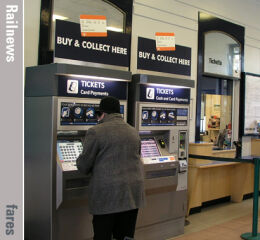Posted 1st March 2024 | No Comments
Campaigners urge restraint as fare rises loom

Regulated fares on most National Rail routes in England and Wales will rise by 4.9 per cent on Sunday, but fares on Transport for London and Merseyrail have been frozen, while the Mayor of London has announced that peak fares will not be charged on Fridays from 8 March, the day which has become the quietest for commuting. The suspension of peak rates is a trial which will run until 31 May, and has been agreed by National Rail operators for journeys on their trains within the TfL area.
Scotland, meanwhile, has abolished all peak fares until June at least, but following an ‘extended freeze’ for season tickets and flexipasses, all ScotRail fares will increase by 8.7 per cent next month.
TfL said its experiment with Friday fares would be ‘keenly watched by major cities looking to bounce back after the pandemic’, including public transport operators in other countries, who are also feeling the long-term economic effects of the lockdowns. Dutch Railways, for example, has warned that it will have to make ‘a significant increase’ to domestic fares in the Netherlands next year, because revenue has not returned to pre-Covid levels.
The Government said its decision to keep the National Rail rise to 4.9 per cent was a ‘significant intervention’, because the increase is ‘considerably below’ the 9 per cent of last July’s RPI, which usually the basis of fare changes the following year.
However, Michael Solomon Williams of the Campaign for Better Transport said: ‘Travelling by train is always greener than driving, and it’s getting even greener as more rail routes are electrified. It is often quicker too, but what we now need to do is to ensure it is also cheaper. Next week’s rail fare rise will do little to address the rising cost of rail travel, so we urge Government to expedite rail reforms to help make trains more affordable. Businesses can also do their bit to reduce transport emissions by having a “rail first” travel policy and encouraging employees to take the train when travelling with work.’
